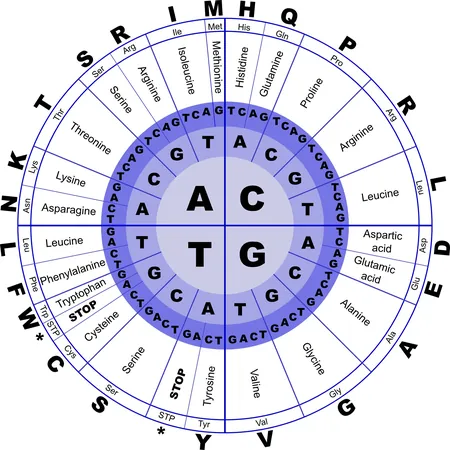
I Just Got My Hands on a Game-Changing Mini PC That Fuses Portability with Power – Here's Why It's the Future of Computing!
2024-09-28
I Just Got My Hands on a Game-Changing Mini PC That Fuses Portability with Power – Here's Why It's the Future of Computing!
When it comes to desktop PCs, the words "portability" and "convenience" rarely coexist, which is precisely why I’ve been on the lookout for the best mini PCs available. Sure, you could cobble together a small form factor build, but you’d likely end up splurging on rare components. I learned this the hard way when I tried to shrink a compact gaming PC to fit into a backpack while navigating international borders.
While traditional laptops have made great strides in portability, I come from an era when they were clunky and severely outperformed by desktops. As such, I’ve always favored desktop setups over laptops. I even brought a mini PC along to Computex earlier this year just to create an environment closer to my preferred workspace.
Growing up, using a family PC in the living room solidified my affinity for desktops, especially since they allow for customizable accessories. Having a mechanical keyboard and a trackball mouse enhances my productivity – features often absent in standard laptops.
However, one of the limitations of most mini PCs is their lack of expandability. But with advancements like Thunderbolt 4 and USB4, connecting an external graphics card is now possible on many mini PCs. Yet, what if you want something that offers even more versatility beyond just gaming?
A Game-Changer in Mini PC Design
Enter the Khadas Mind: a mini PC so compact it can fit in your pocket, yet can seamlessly transition from a work machine to a gaming powerhouse. After a week of testing, this device feels like a glimpse into the future of computing.
The Khadas Mind, measuring just 5.74 x 4.13 x 0.79 inches, resembles an external hard drive more than a full-blown PC. Despite its size, it packs in multiple connectivity options, including two USB-A and USB-C ports, along with an HDMI port. Impressively, it features a built-in 5.5Wh battery, granting users the freedom to work on-the-go.
The unibody design, reminiscent of Apple's Mac Mini, boasts an anodized aluminum finish. It's powered by either an Intel Core i5 or Core i7, with memory options of 16GB or 32GB DDR5 RAM. Users can choose between 512GB or 1TB SSD, and there’s an additional slot for an M.2 SSD hidden underneath. One innovative design choice is its USB-C power port, moving away from the common barrel connectors found on most mini PCs.
Khadas offers two magnetic docks for the Mind: a standard dock that boosts port availability and adds features like a fingerprint reader and support for multiple screens, and a more robust graphics dock that includes an Nvidia RTX 4060 Ti graphics card, speakers, and various additional ports.
Effortless Setup
To kickstart my usage, I connected the Mind to my Anker 675 docking station. Booting up was seamless. The device operates a clean version of Windows 11 free of bloatware, complemented by a dedicated Mind app for driver updates and settings adjustments. Its quiet operation while browsing and performing light tasks was particularly impressive.
Moreover, you can power the Mind through monitors equipped with USB-C power delivery. For instance, I connected it to my Samsung M5 monitor without a hitch, maintaining its performance.
A Portable Workstation
The ease of transitioning between work environments sets the Mind apart. I tested it with the Mind Dock, which offers additional ports and features like audio jacks and Ethernet connectivity. The dock enhances multi-monitor setups and simplifies tasks like logging into Windows via its fingerprint reader.
The portability allows you to effortlessly move the Mind between your office and home or use it for work and gaming, making it versatile for remote work or collaboration.
Ready for Gaming Action
Now, let’s discuss performance. When playtime arrives after work, the Mind’s true power is unleashed once you connect it to the Mind Graphics dock, with an impressive RTX 4060 Ti GPU. The dock not only elevates graphical performance but does so elegantly.
Games run smoothly at 1080p, often exceeding 100 fps without any noticeable performance hiccups. The fan on the graphics dock operates quietly, ensuring an immersive gaming experience without distractions.
Is It Worth the Investment?
Though the Khadas Mind offers stellar features, it does come at a price. The base model starts at $599, while the upgraded version costs $799. Adding the Mind Dock and Graphics dock ups the price significantly, with the former costing around $179 and the latter priced at $999 or $1,099 based on the VRAM.
While critics may argue that a gaming laptop or a smaller gaming desktop could achieve similar results, the Khadas Mind caters to a niche audience looking for a versatile, modular mini PC solution.
From my time testing the Khadas Mind, it's clear that this machine is designed for those who need both power and portability. Whether swapping from one setup to another in the same office, or bringing your work home, this mini PC holds great potential. Though further tests are on the horizon, I am already astonished by its remarkable design, feature set, and utility.
Are mini PCs hitting the mainstream? With advancements like the Khadas Mind, the future of compact computing looks promising! Stay tuned for more updates!









 Brasil (PT)
Brasil (PT)
 Canada (EN)
Canada (EN)
 Chile (ES)
Chile (ES)
 España (ES)
España (ES)
 France (FR)
France (FR)
 Hong Kong (EN)
Hong Kong (EN)
 Italia (IT)
Italia (IT)
 日本 (JA)
日本 (JA)
 Magyarország (HU)
Magyarország (HU)
 Norge (NO)
Norge (NO)
 Polska (PL)
Polska (PL)
 Schweiz (DE)
Schweiz (DE)
 Singapore (EN)
Singapore (EN)
 Sverige (SV)
Sverige (SV)
 Suomi (FI)
Suomi (FI)
 Türkiye (TR)
Türkiye (TR)